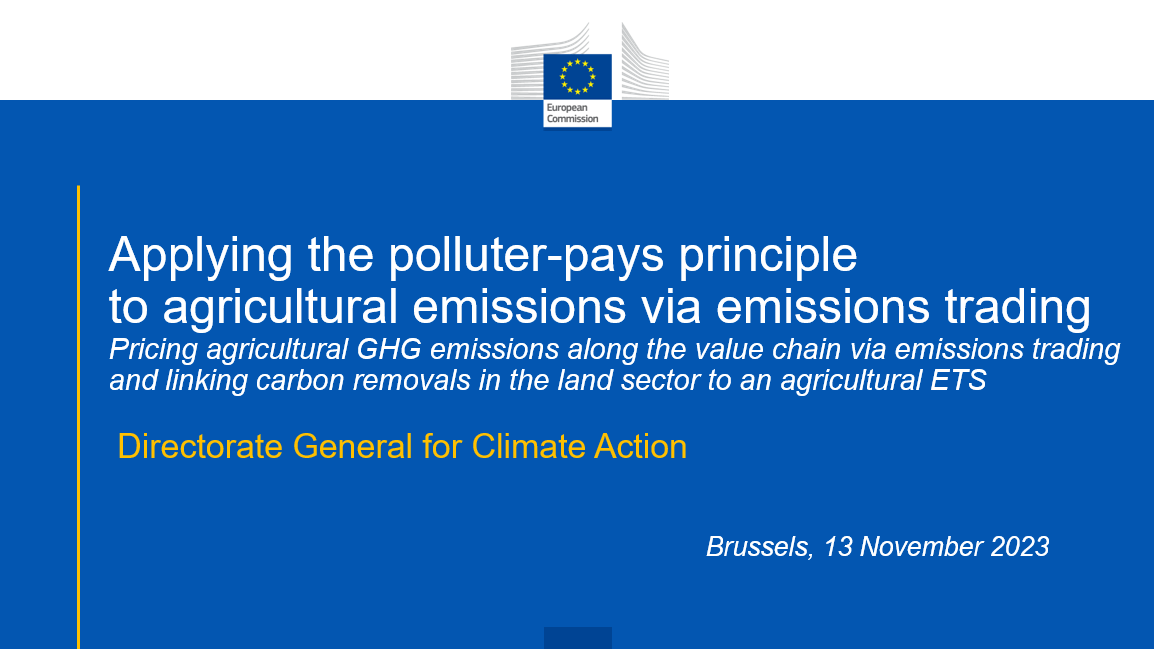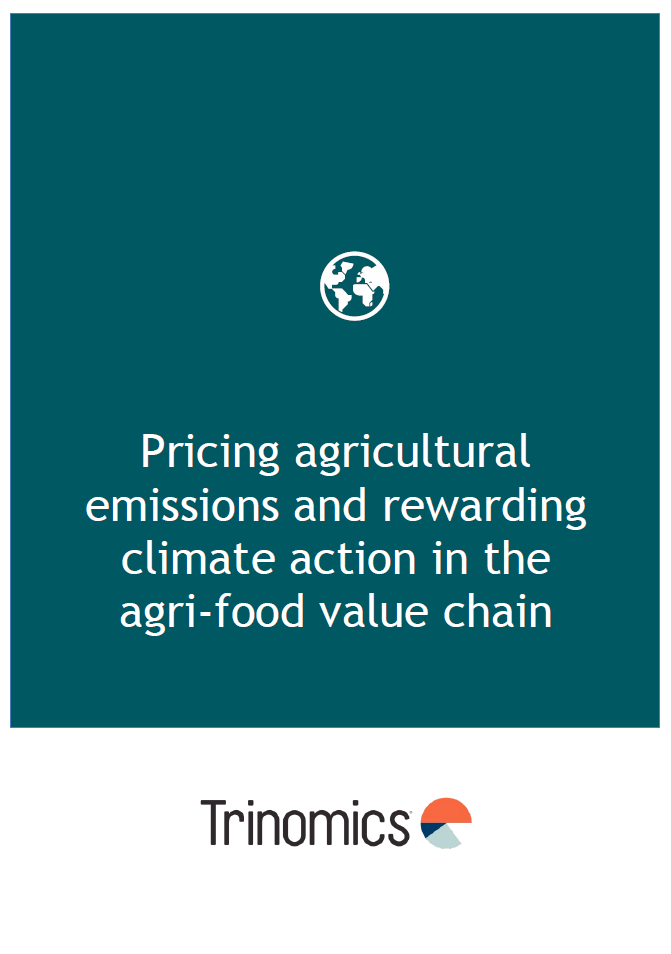Photo by Lukas Hartman | Pexels.
To limit global warming to 1.5 °C, we need rapid emissions reductions from all sectors of the economy – including agriculture. Despite being a direct source of 12% of EU's annual GHG emissions, agriculture currently face few direct financial incentives to mitigate climate change. This project for the European Commission's Climate Directorate General investigates policies that put a price on agricultural emissions and reward farmers and others in the land use sector for sequestering carbon on their land.
This study responds to a call by the European Court of Auditors, who, in their critical 2021 review of the Common Agricultural Policy, called for the polluter pays principle to be applied to agricultural climate emissions. The polluter-pays principle makes it costly to pollute. This shifts the costs of pollution to the polluter, and in doing so generates incentives to prevent, control, or remove pollution. It can be implemented through numerous policies, including environmental standards and regulation, taxes, and emissions trading schemes.
The project:The overall objective of the project is to assess a set of design options for implementing the polluter-pays principle to climate emissions in Europe’s land sector. This is pursued in three complementary tasks. Task 1a identifies and assesses different policy options for implementing polluter pays to agricultural GHGs, with a focus on different designs of agricultural sector emissions trading schemes. Task 1b investigates how revenue or allowance demand raised through an agricultural emissions trading scheme can best fund increased carbon removals by the land use, land use change, and forestry sector. In addition to identifying and describing policy options, these tasks evaluate their strengths and weaknesses in line with the EU Commission Better Regulation guidelines. Both task 1a and 1b involve desk research and expert interviews, drawing on agricultural polluter pays experiences initiatives and instruments within and beyond the EU. To incorporate expert input and stakeholder views, task 2 involves the organization of a workshop, conference, and survey (Task 2).
Ecologic Institute's role: Within the project, Ecologic Institute leads task 1b, which assesses policies that direct polluter pays revenue to increase land-based carbon sequestration from options such as soil carbon, agro-forestry, and afforestation, and the challenges and risks involved. Ecologic Institute also supports work in task 1a developing and assessing polluter pays policy options in the agricultural sector and task 2 stakeholder work. The project builds on a series of recent work Ecologic Institute has done on nature-based carbon removals and agricultural emissions, including work for the European Commission on carbon removal certification and carbon farming, and for the European Parliament and the German Environment Agency, among other work.





